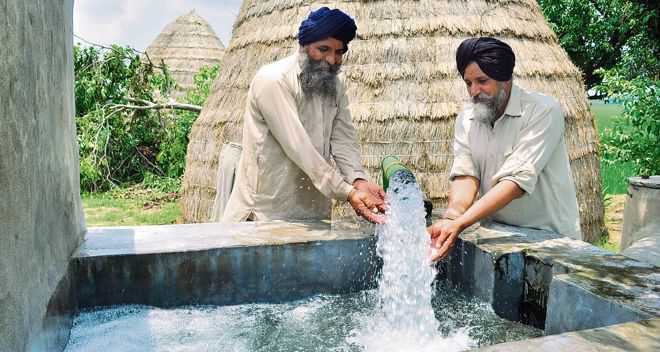Punjab’s woes are worsening on the water front. The conclusion of a draft report of the Central Ground Water Board is that the state will be reduced to a desert in 25 years if the exploitation of its underground water resources continues at the current rate. The extraction of groundwater is a staggering 165 per cent, mostly from the 14 lakh-plus tubewells in Malwa and other regions. The ruling Congress had itself admitted on the floor of the House earlier this year that the estimated groundwater availability for future irrigation use was ‘negative’. Water-guzzling crops such as paddy are mainly held responsible for the sorry state of affairs, but there is no action plan in place to help farmers shift to alternative crops through assured marketing of their produce.
The Punjab Preservation of Sub-Soil Water Act 2009 was enacted to curb the depletion of the water table by fixing a date for the start of paddy sowing nearer to the onset of monsoon. It is estimated that putting off this date by one day can save 4.8 lakh million litres of groundwater. However, the farming community — a vital vote bank — has been pressing the government to allow early sowing, claiming that otherwise harvesting gets delayed and the yield drops. Days before the Lok Sabha elections in Punjab, the powers that be have succumbed to the lure of populism and advanced the crucial date by a week.
Last year, a study commissioned by the Centre’s Department of Science and Technology had found that 70 per cent of the groundwater in Malwa had been rendered unsuitable for irrigation due to overuse. The high concentration of salts is taking its toll on soil fertility as well as crop yield. The country’s food bowl is digging its own grave. There is a dire need to move from intensive farming to agro-ecological practices. The focus should be on ensuring food security without degrading the environment and human health. Various stakeholders should go all out to avert the man-made disaster, even if it entails taking unpopular decisions. After all, Punjab’s survival is at stake.









